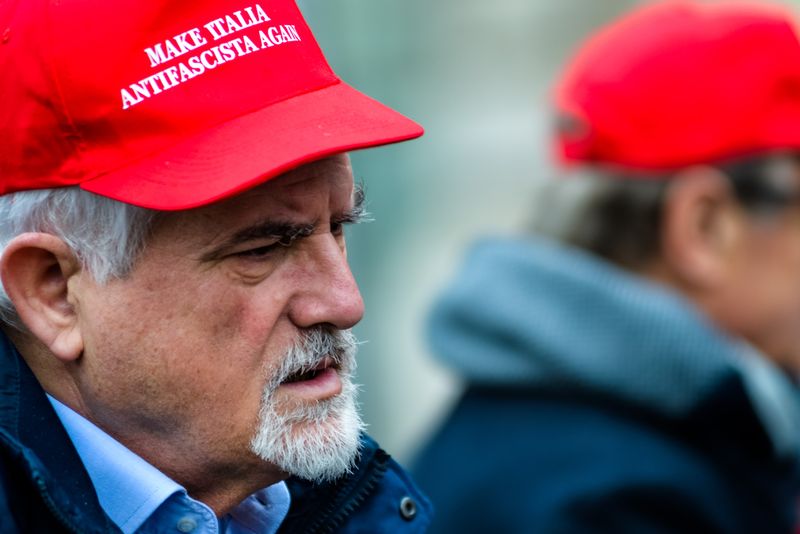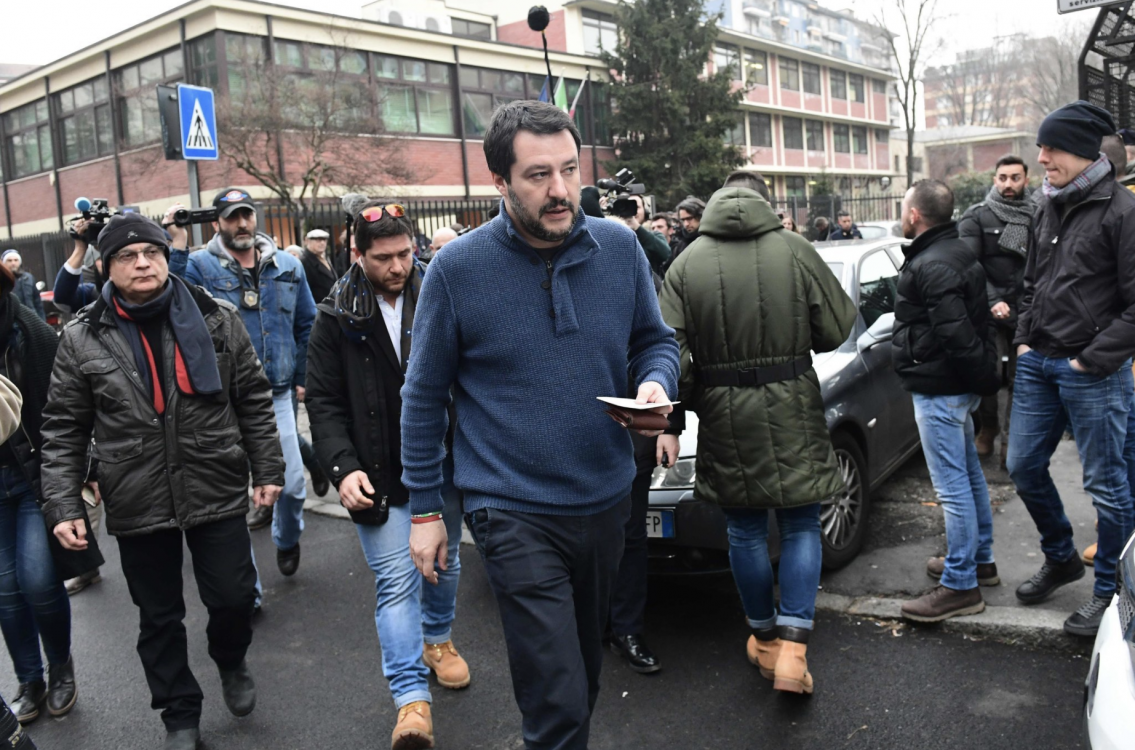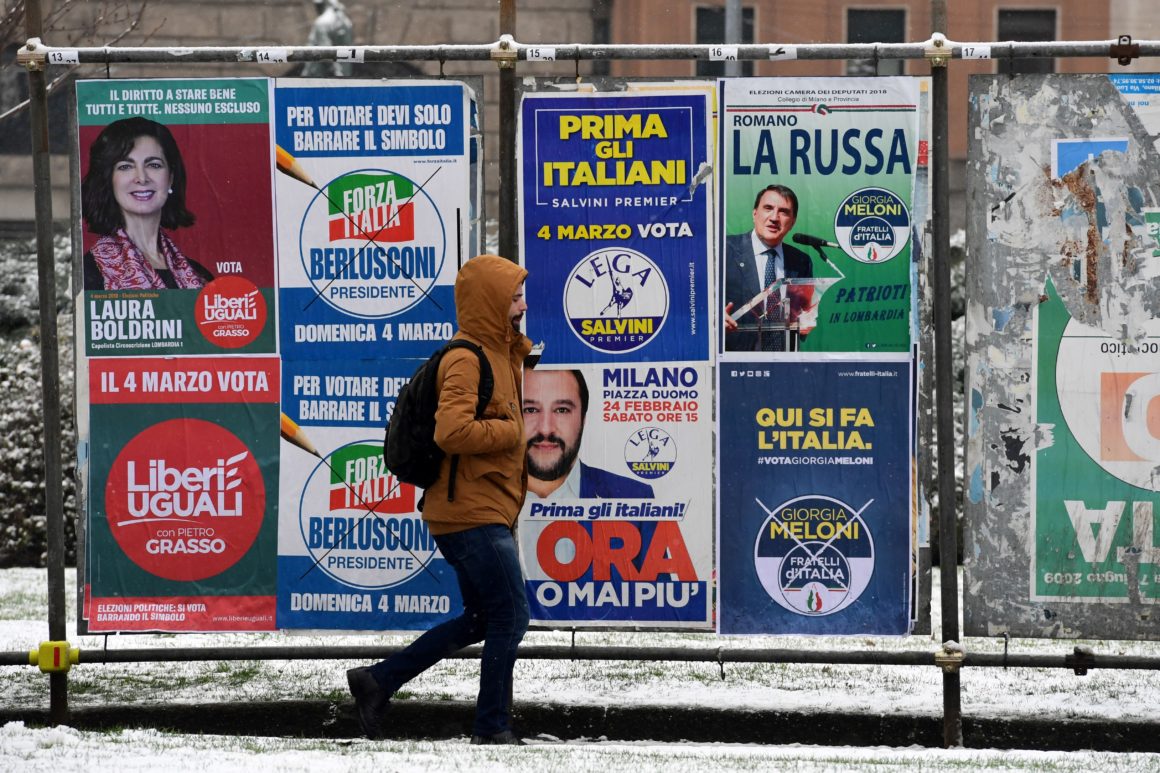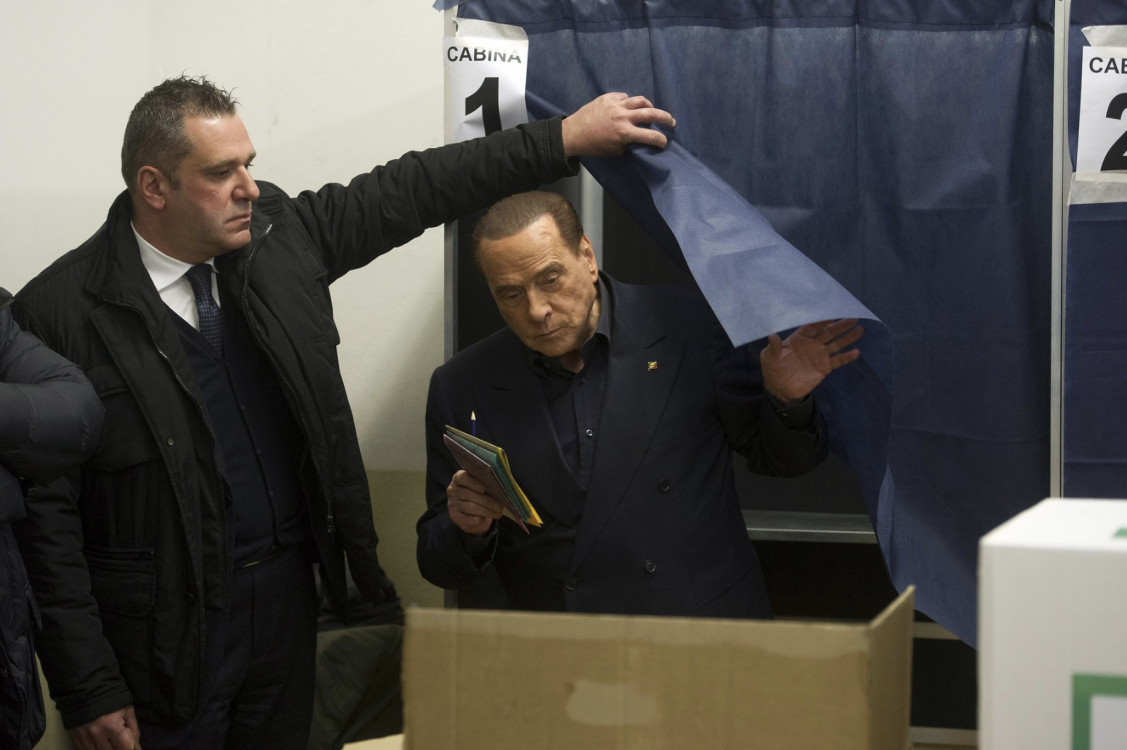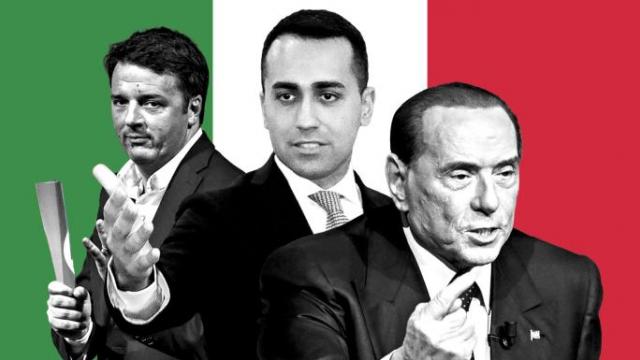
On Sunday, Italian elections yielded the most populist, anti-establishment results seen in contemporary Europe, with 32 percent voting for the Five Star Movement and an unlikely far right and centrist coalition winning between the former governing party, Forza Italia, Fratelli d'Italia and the Lega Nord.
What do these parties represent, and what do their victories mean for the country and the continent as a whole? For starters, the Five Star Movement, a left-leaning, web savvy party established in 2009 by former comedian Beppe Grillo, now finds itself at the head of a mixed, anti-establishment administration that other parties may not be all that willing to join.
All four of the parties that took the most votes on Sunday are decidedly populist, and the majority are openly Eurosceptic and anti-immigrant. While they have different political ideologies, they can also be seen as the end result of a long and arduous shift in Europe away from a moderate left toward a radicalized far right.
Lega, the Far Right Contender
The Lega Nord party in particular, led by Matteo Salvini – former Italian Prime Minister Silvio Berlusconi's right hand man – gathered 18 percent of the vote, riding an inflammatory, far right platform. Having gained notoriety by calling for the razing of Roma (gypsy) camps in Italy, then defending aspects of Benito Mussolini's rule, Salvini's party saw another surge in popularity following the shooting of six African immigrants by a far right extremist in early February.
According to Salvini, the shooting was entirely due to the migrant crisis caused by the European Union's unwillingness to tackle the issue. In his campaign he promised racial segregation in public transportation, mass deportations of immigrants, and he even blamed refugees for drug trafficking and sexual assault.
Like Silvio Berlusconi before him, Salvini appears to have absolute control over not only Lega's direction, but in regard to the entire rightward shift of Italy's political movements overall. His campaign ravings even resonated among formerly left-leaning voters such as Giulia De Virgilio and her husband, Vico Vicenzi, both 72-year-old lawyers, who said:
"[They] are cannibals... Nigerians are drug dealers.”
This was in the aftermath of an Italian woman's murder in late February, which Lega didn't hesitate to use to boost its own standing in the polls. Appropriately enough, Salvini has also made sure to maintain a close connection with other European far right political leaders like French nationalist Marie LePen and Dutch Party for Freedom leader Geert Wilders. He has also been an outspoken Donald Trump supporter.
Salvini is now vying for a chance to run the coalition government, claiming that 18 percent of the vote gives him the right to be Prime Minister. This flies in the face of the Five Star Movement's claim to victory, a surefire indicator of problematic negotiations ahead.
Fratelli d'Italia, Neo-Fascism Without the Stigma
Originating from the rightwing Alleanza Nationale, an offshoot of the Italian Social Movement established by former supporters of Mussolini in 1946, Fratelli d'Italia has been part of a coalition government before, most notably in 2001, when Silvio Berslusconi was Italy's prime minister.
It's important to note that, despite the sudden rise of the far right – which also encountered a very vocal pushback across the country – fascism doesn't carry as much of a stigma in Italy as it does across much of the West. If anything, according to Lorezno Pegliasco, a professor or political science at the University of Bologna:
"There is, I would say, less of a stigma, less strong than in Germany and I would say that part of the population doesn't see fascism as badly as they see Nazism. They tend to believe that Mussolini did some terrible things but he also did some good for the country. And that, in a way, the World War and Holocaust was caused by Hitler and that the mistake was forming an alliance with Hitler... I wouldn't say there is a large neo-fascist movement because they are quite marginal phenomena. But certainly there is a weaker stigma attached to fascists in Italy."
Fratelli d'Italia has even used its connection with Mussolini's political heritage to gain leverage among voters, with party leader Georgia Meloni launching the party's latest campaign sponsored by Rachele Mussolini, the dictator's great-granddaughter. Il Duce still has some clout with the Italian public, it seems, as 21 percent of voters remain in favor of Mussolini, claiming he helped the country despite the disastrous end result.
Extreme neo-fascist parties are still barred from entering the Italian government, however, as they barely gained more than 1 percent of the vote total. Fratelli has perhaps managed to rebrand fascism more effectively than the others, without having to bother with blackshirt dress codes.
Compromise, Compromise, Compromise
Winning barely 20 percent in the polls, the former ruling party, Forza Italia, headed by Berlusconi, now finds itself the only moderate conservative voice in the entire coalition.
According to early predictions made by Mabel Berenzin, a professor of sociology at Cornell University and an expert in European populism and fascism, Berlusconi "does not shy away from partnering with the extreme right. If he succeeds, not only will this be an extraordinary political resurrection, but he would come to power with the same coalition that he assembled for his first government in 1994.
"But, 2018 is not 1994," warned Berenzin. "Berlusconi's original coalition, aside from enabling Lega to become a permanent force in Italian politics, did not have much impact beyond Italy. [This] election will bring Italy in line with the worst tendencies in contemporary European politics."
Despite various disastrous predictions, the Italian parties must still be willing to form a coalition government. The Italian political scene is infamously chaotic, and with the uncertain state of the country's economy it is expected that financiers will begin to withdraw capital from the country if the negotiations appear to be falling apart. According to Dutch political scientist Cas Mudde:
“Italian politicians talk a better game than they actually play. For all the public flirting with Euroscepticism and populism, Italian governments have caused the E.U. fewer problems than France or the Netherlands, let alone the United Kingdom.”
Nevertheless, the elections could be a crucial next step in Europe's fragmentation. Clearer still is the fact that the Five Star Movement's populist victory, and the far rightest candidates' rise to power, indicate what amounts to the political death of the moderate left in the country. And the trend may be spreading.
From the U.K. to Germany and all the way to Austria, the left has been steadily losing ground, especially in the aftermath of the E.U.'s mismanagement of the refugee crisis. This, coupled with the gradual decline in welfare states across the European body, and the steady rise in poverty and unemployment rates, has caused voters to openly flirt with isolationism as an answer to their troubles.
According to former U.K. Conservative Party leader William Hague, the Left now needs to open itself to new ideas and come in line with the rest of society, otherwise "we will not just be reading two more chapters in the death of the moderate Left, as we are this week. We will be closing the book. And the only mystery will be why they carried on letting it happen.”
3 WAYS TO SHOW YOUR SUPPORT
- Log in to post comments

